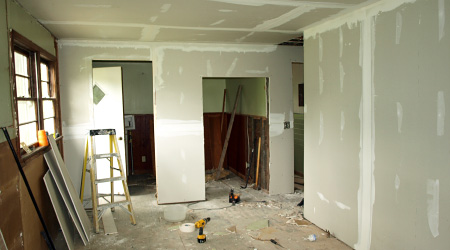How Will Remodeling Affect My Property Taxes?

Many homeowners want to improve their property but they always ask themselves how will remodeling affect my property taxes? Whether or not your property taxes will go up is strictly dependent on the size and scope of the remodeling involved. For the most part this is a commonsense question which also has a commonsense answer in that if extensive remodeling is to take place it could lead to an increase in property taxes. There are however a couple of things that can be done to minimize this increase and still enjoy the benefits of upgrading your home.
What often takes place in many neighborhoods around the country is one neighbor does significant improvements to their property such as adding a pool or building an addition onto the house which immediately starts an arms race. Suddenly everyone in the neighborhood wants their house to be better and they start considering what modifications can be made so they don't get left behind. While everyone knows this type of competition is both unnecessary and expensive it doesn't prevent most homeowners from at least getting the idea of making improvements. One of the best ways to make upgrades to your house while minimizing a property tax increase is to keep all improvements on the inside of the house and limit upgrades to the exterior.
Good Remodeling
Good remodeling includes those types of improvements confined to the interior of the house. This can significantly increase the quality of life for the living space without creating a reason for your property tax to increase. These types of improvements include upgrading flooring materials from basic carpet to hardwood floors, remodeling the kitchen or bathrooms and finishing an attic or basement space. Depending on the age of the house, some of these upgrades may be considered repairs and not improvements which can also help minimize a property tax hit.
Bad Remodeling
Bad remodeling in regards to property taxes include adding a new deck, installing a swimming pool or in ground hot tub, adding or extending a significant amount of concrete for a driveway, high-end professional landscaping and any type of home addition like a new room or second story. While all these improvements can be wonderful remodeling efforts, if your neighbors have not done likewise then your house will become significantly more expensive relative to the neighborhood and will probably result in a property tax increase to reflect the increased value.
Property Reassessment
If your property taxes go up as a result of improvements it is possible to file a challenge with the County assessor's office to dispute the tax increase. However, this is a risky maneuver because it is possible the assessor may have missed improvements on the prior inspection and increase your property taxes even more. It is recommended to only challenge a property tax assessment if you are virtually guaranteed your taxes will be decreased as a result of the challenge.
Summary
You may want to wait until your neighbors plan to make similar remodeling efforts because if a neighbor's house increases in value it increases your value by default. So if they are making significant exterior improvements your property tax will go up regardless and at that point it would make sense to do extensive exterior remodeling. So it's not necessarily a matter of good remodeling or bad remodeling but it's about making smart decisions that will affect your property taxes in relation to your neighbors.
Houses are reassessed periodically by property assessors to verify the value of homes in a neighborhood which will lead to more property tax revenue for the state. If all the houses in an entry-level neighborhood are suddenly remodeled to million-dollar homes then the city and state will obviously want to take note of this development to raise property taxes. If however no one has made improvements then it would be more appropriate to only upgrade the flooring and bathrooms which can still increase your standard of living while hopefully leaving your property tax rate in place.







